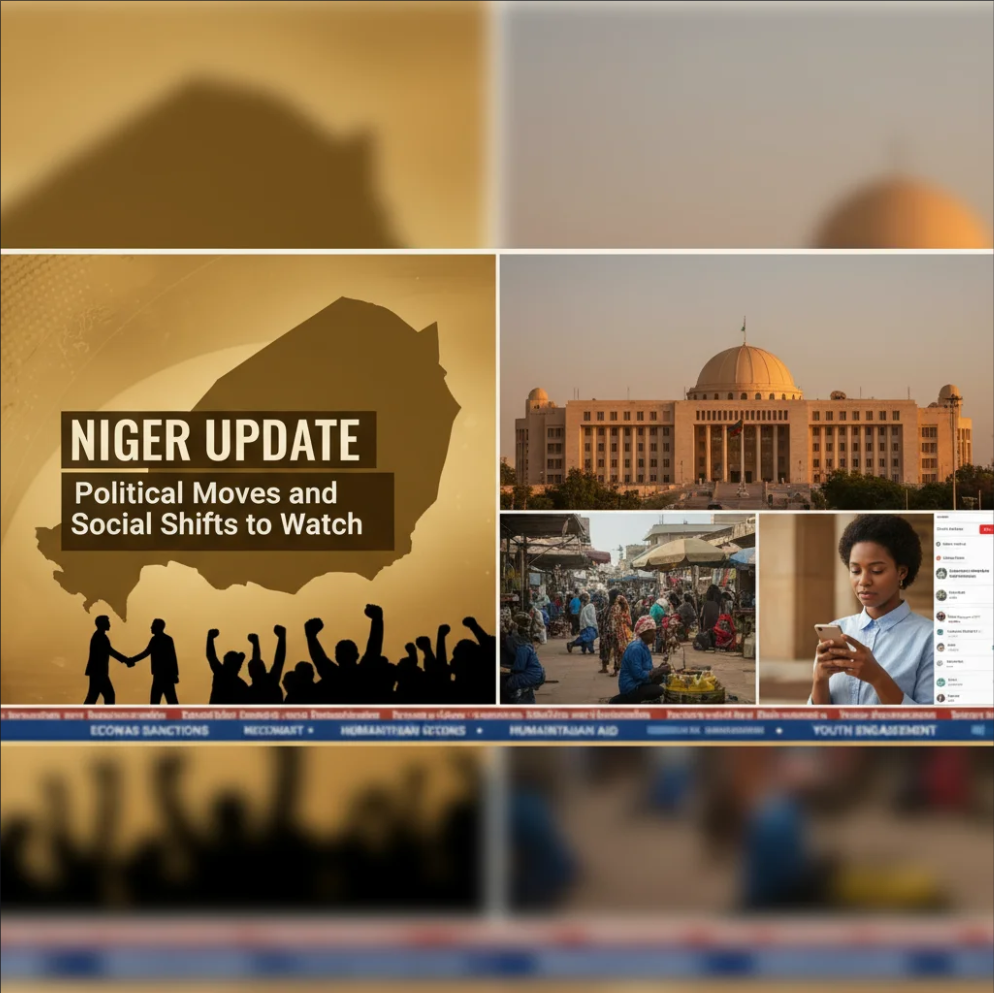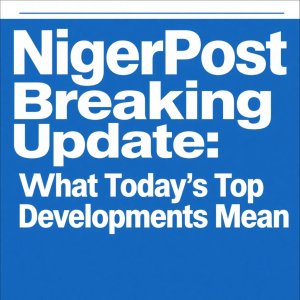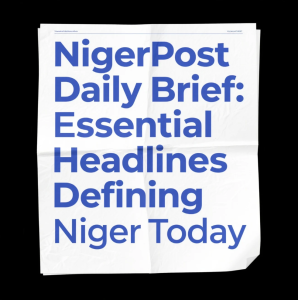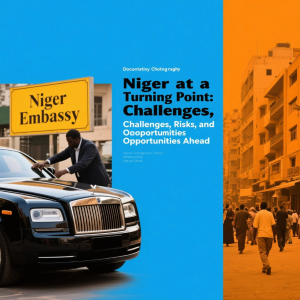Niger is at a critical turning point. As the country moves deeper into its transition period under the military regime, recent developments in politics and civil society are shaping the path ahead. In this article, we unpack the key political moves and social shifts that could define Niger’s future.
1. Five-Year Transition Charter and National Conference Reforms
A major political development in Niger is the implementation of reforms via the National Conference, which proposes a five-year transition period to non-military, constitutional rule. Under this charter:
- Existing political parties have been dissolved. ABC News+3APAnews – Agence de Presse Africaine+3allAfrica.com+3
- A new “Refoundation Phase” of 60 months has been adopted, along with a new charter with constitutional weight. APAnews – Agence de Presse Africaine+2allAfrica.com+2
- A Consultative Council for Refoundation (CCR) has been created to advise the transitional government. African Now+2Civicus Monitor+2
These moves are designed to institutionalize and legitimize the junta’s hold on power — while promising a path toward elections. However, many observers remain skeptical about whether the transition will truly lead to democratic governance. Civicus Monitor+1
2. Sovereignty Asserted via Resource Nationalization
One of the biggest hard-line political moves is the government’s decision to nationalize the Somair uranium project, previously co-owned by French company Orano. Financial Times+1
- The junta justifies this as reclaiming national sovereignty and penalizing what it describes as unfair contract terms and “financial misconduct.” AP News+1
- This has escalated tensions with France and Western actors, and aligns with similar trends in other Sahel countries. Financial Times+1
3. Rise of Civilian Participation (And Concerns)
Social shifts are apparent: citizens are being recruited or mobilized in roles traditionally reserved for formal state actors.
- The government has launched “Garkuwar Kassa” (“Shield of the Homeland”) — a patriotic civilian militia program to assist security forces in counterterrorism and civic vigilance. Le Monde.fr
- While presented as civic duty, critics warn this could erode the state’s monopoly on violence, raise concerns about human rights, and risk politicizing security. Le Monde.fr
4. Deterioration of Civic Space and Human Rights
Amid the political reorganization, social freedoms and civil rights are under strain:
- Former President Mohamed Bazoum remains detained, and his immunity was stripped. Calls for his release from rights organizations continue. allAfrica.com
- The media and NGOs have reported increased restrictions. Several nonprofit organizations have shut down or faced pressure, citing government controls and reduced operational freedom. Deutsche Welle+1
- Civil society and political opposition are skeptical of the transition’s openness. Many boycotted the National Conference. Civicus Monitor+1
5. Migration Policy and Social Awareness Campaigns
Some of the shifts are more social than political but no less significant:
- Niger has been implementing its National Migration Policy (2020-2035). Recently, awareness campaigns (e.g. in Agadez) have stimulated public debate on migration, refugee protection, and how to balance security & human rights. Dialogue Migration
- These social policy moves, while less visible than constitutional charter changes or nationalization, reflect a recognition of pressure from citizens, climate change, displacement, and humanitarian needs.
6. Wider Regional Realignments
These developments in Niger are not happening in a vacuum — they reflect and amplify broader shifts across the Sahel region:
- Niger has withdrawn from several regional security forces (e.g. the Multinational Joint Task Force in Lake Chad) and from ECOWAS: aligning instead with the Alliance of Sahelian States (AES). The Guardian+1
- This realignment has implications for trade, security cooperation, foreign investment, and diplomatic relations. Deutsche Welle+1
Conclusion
Niger’s current political moves and social shifts suggest a country trying to balance sovereignty, security, and legitimacy under a military regime. Key reforms like the transition charter and nationalization reflect assertive governance. Meanwhile, civil society is under pressure, but social awareness and migration policies show evolving public engagement.
For watchers of African politics, Niger is a case study in how countries are redefining power, civil rights, and nationhood in a complex regional and global environment. How the transition unfolds — whether it leads to genuine democratic governance or entrenched military rule — will be critical for the country and the Sahel at large.




